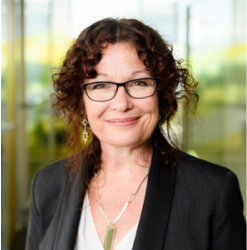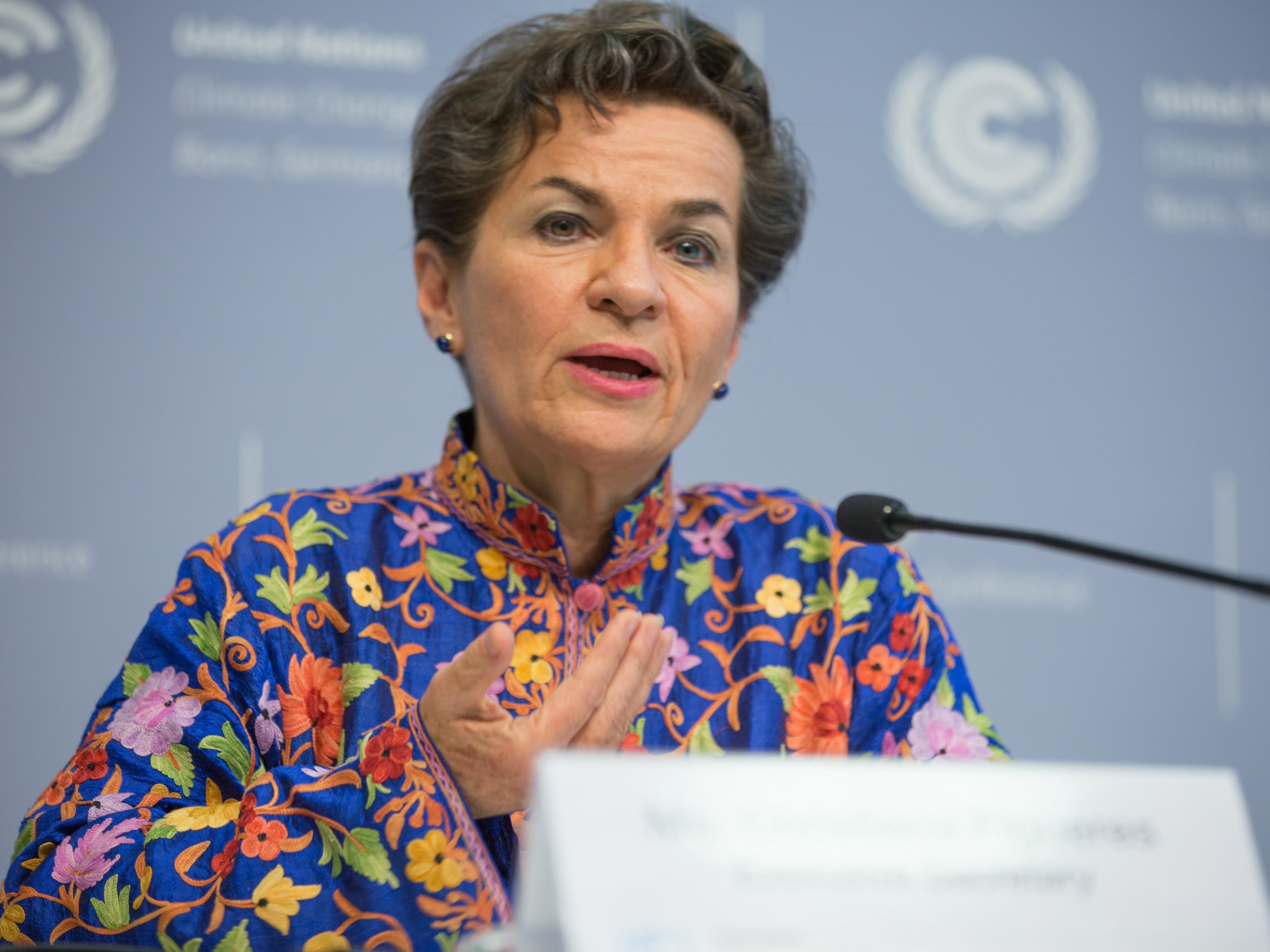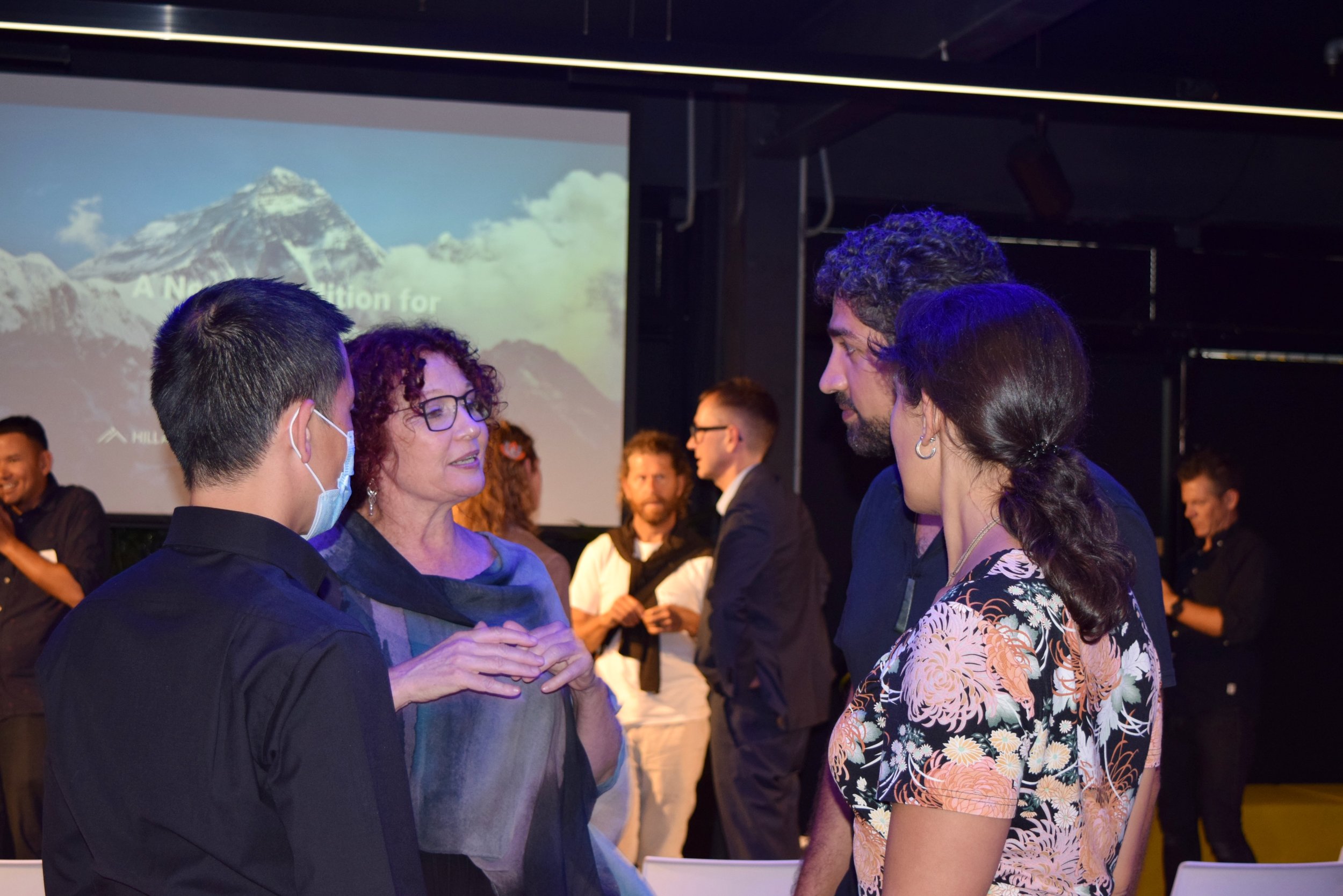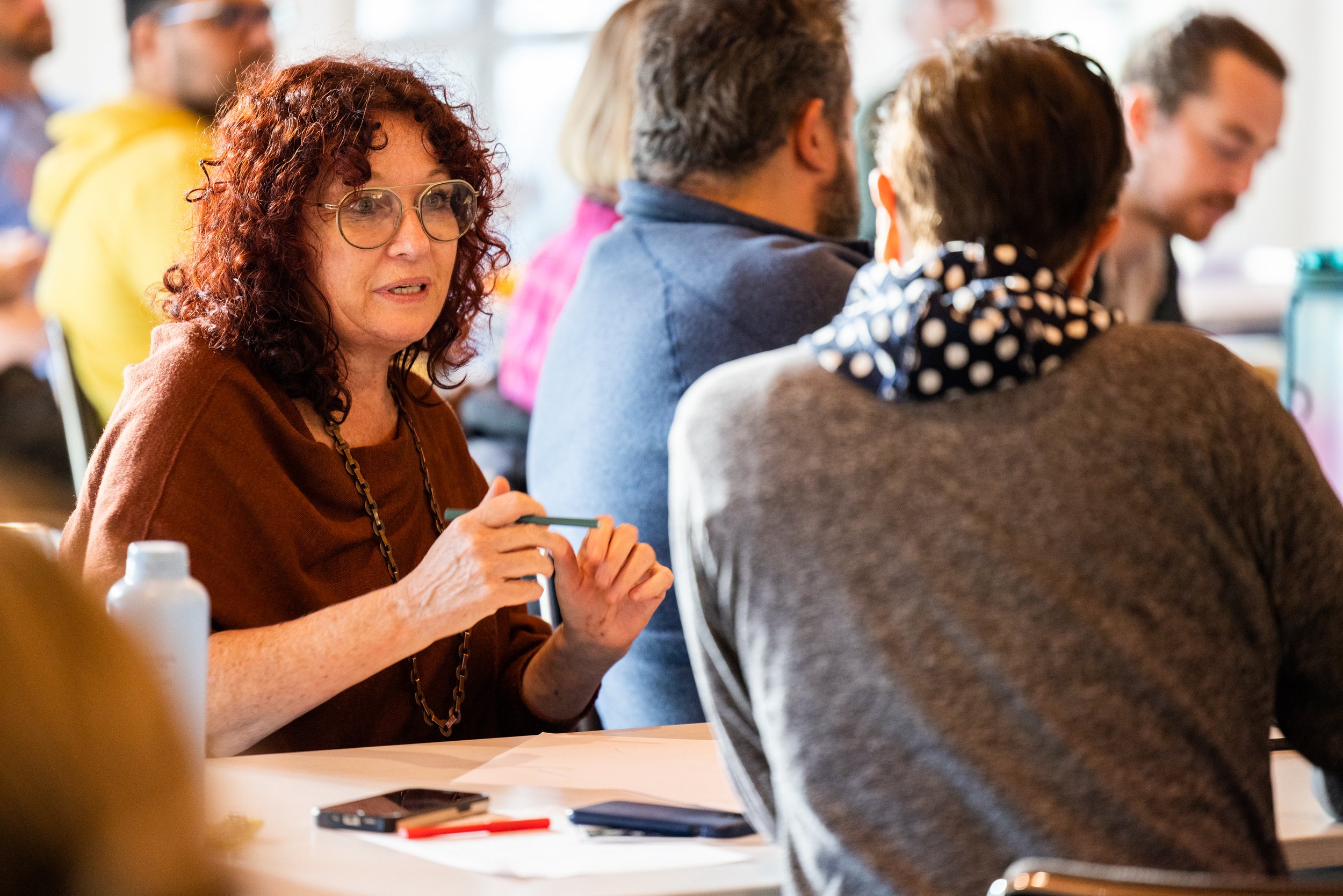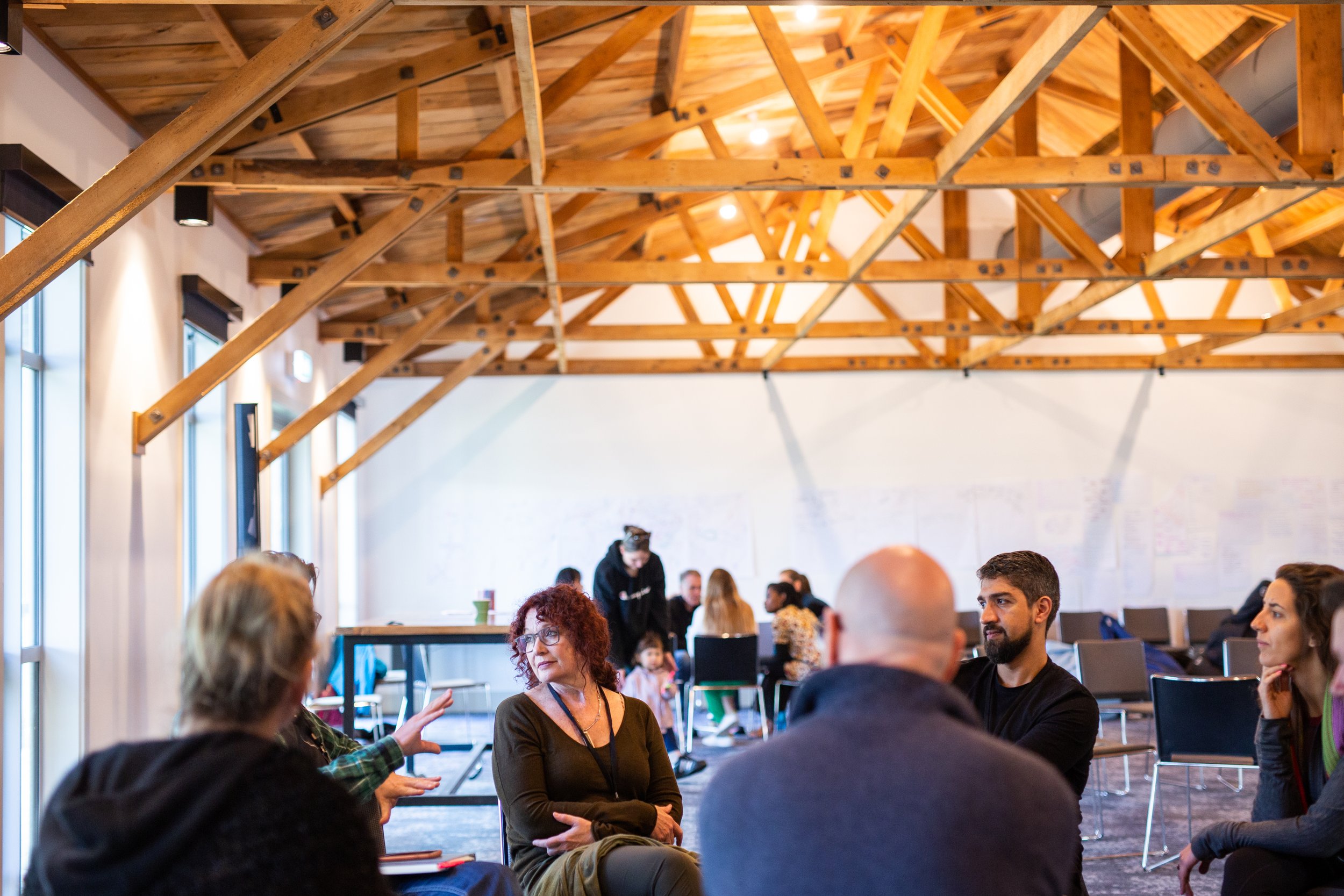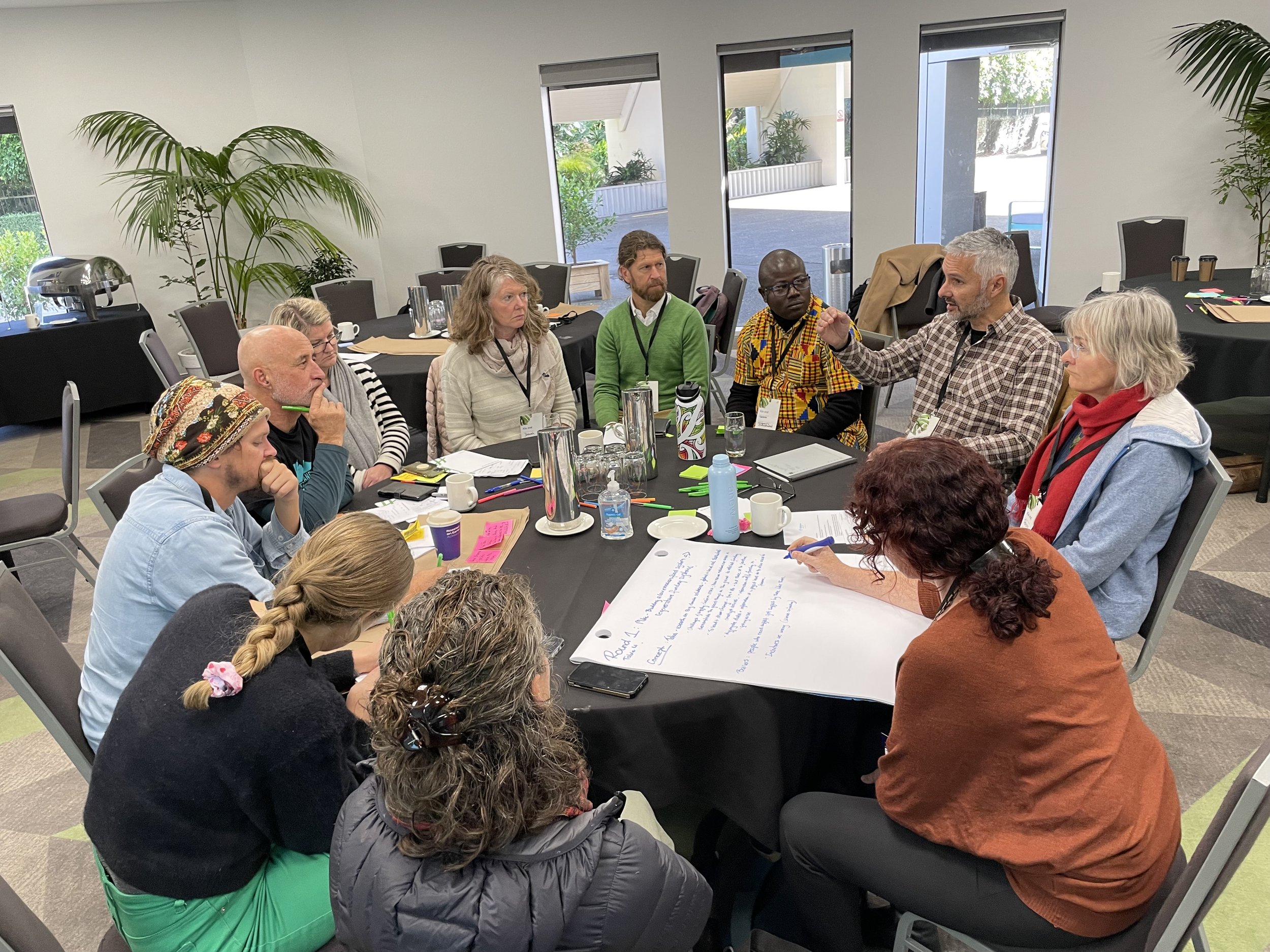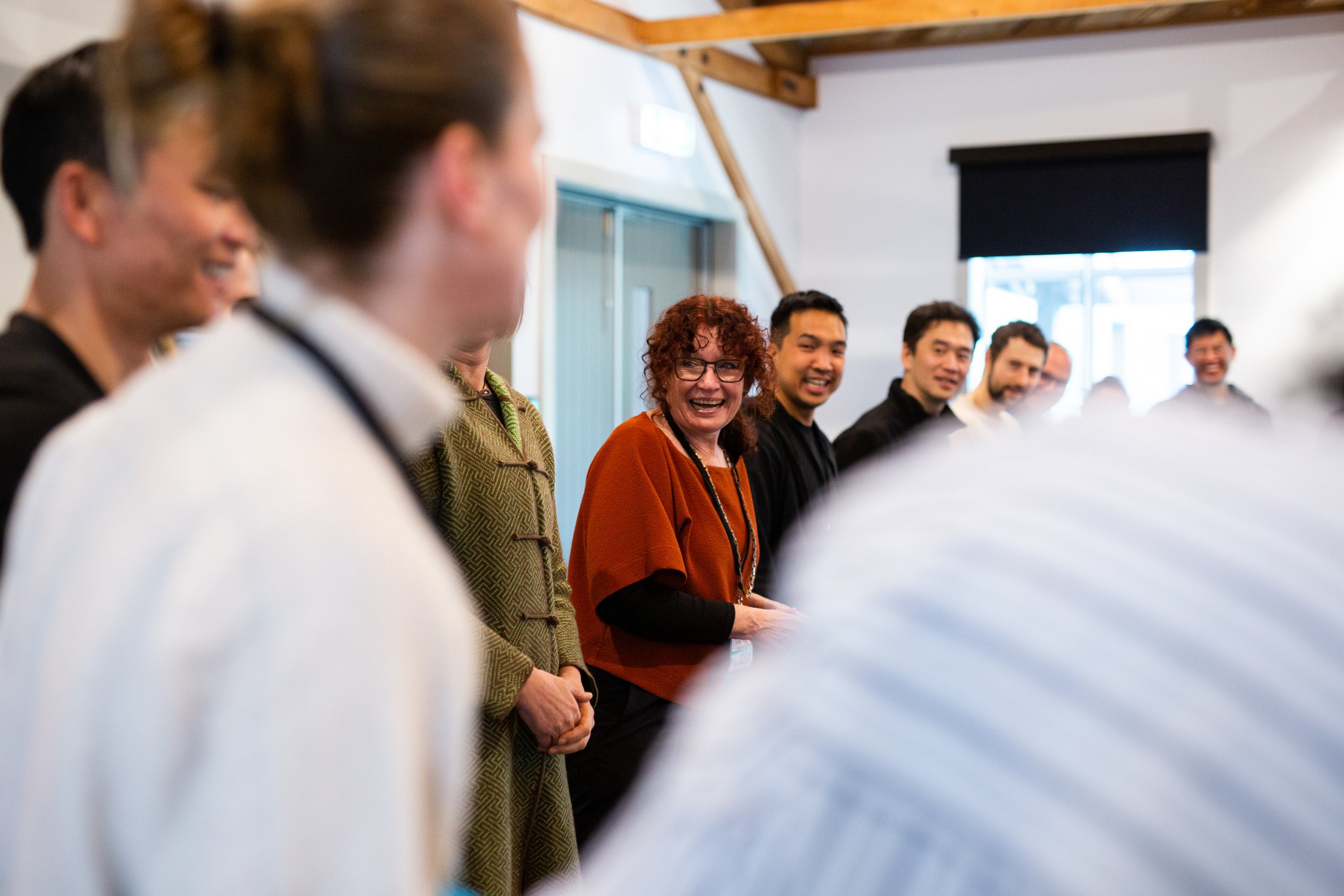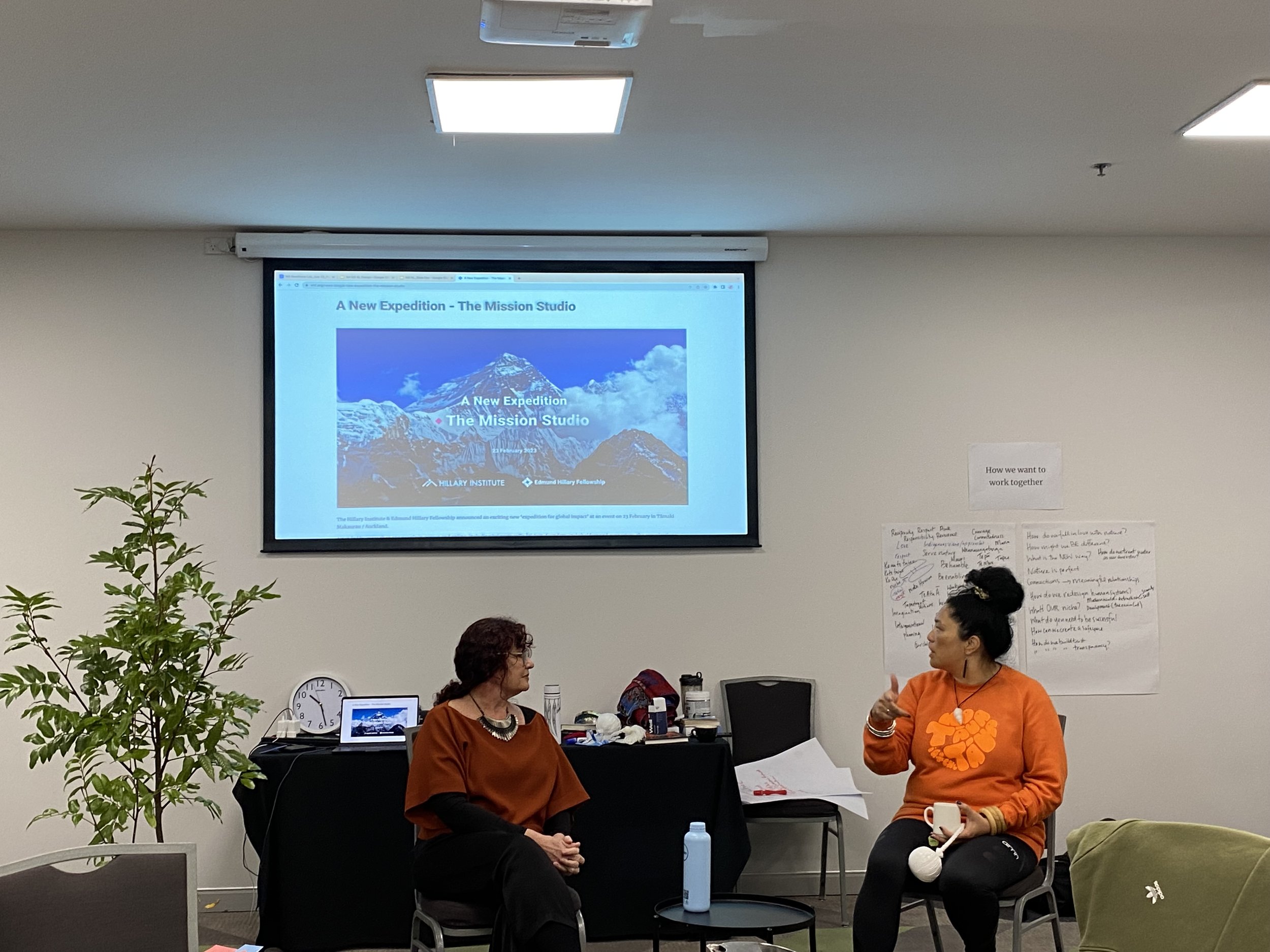Navigating 2024 with Stubborn Optimism: A conversation with Rosalie Nelson
15 January 2024With 2024 underway, Hillary Institute and Edmund Hillary Fellowship CEO Rosalie Nelson is looking to the year ahead with optimism. Taking inspiration from Hillary Laureate Christiana Figueres’ stance on why Stubborn Optimism matters, Rosalie sees the power of optimism as a beacon guiding humanity towards innovative solutions and transformative change.
Hillary Institute and EHF CEO Rosalie Nelson, and Hillary Laureate Christiana Figueres
With the world facing many challenges, why is optimism so important?
For me, optimism is the key to unlocking solutions - and it’s never been more important than right now. Particularly when there are so many complex changes, systems disruptions, and an environment where so much of what we see and hear can feel negative.
I am continually inspired by what Hillary Laureate Christiana Figueres has talked about, which is stubborn optimism. It’s a mindset. It is not blind reality. It is not wishful thinking, or being oblivious to hard facts. Stubborn optimism still recognises the complexity, the scale, and often what might be the devastating impacts of the systemic challenges we are facing. But, if we only see the problem, that is what consumes our vision - and we cannot see beyond it. So for me, optimism is what gives us the agency and the imperative to see above and around a problem, and look towards solutions. To quote Christiana, “it’s a necessary input for addressing any challenge, if we want a chance of success.”
I’m also really inspired by Sir Edmund Hillary around optimism, because time and again you see that when someone achieves what felt to be impossible, it does become possible. And then over time it even becomes probable. So, this is a time where we need stubborn optimism, more than ever.
I’d even go further to say that I believe we owe the next generation a demonstration of how optimism can impact our leadership, our actions and our attitudes. We have a generation that we know is facing high anxiety and a real sense of existential risk, and in the face of this, it can feel completely overwhelming. At times, people cannot see what change they might be able to make, and so they go inward, they reduce their world, and they just do what they can within their field. They need to see that, actually, humanity has the capacity and the ingenuity to address any challenge.
This holds personal significance for me because when the war in Ukraine erupted, my 25-year-old daughter expressed her scepticism, saying, "Mum, I cannot see why you have optimism. We’re facing war. I’m looking at the rise of the authoritarian populus who are denying climate change. I’m looking at the real risks we face, and I cannot understand why you are optimistic." This prompted a conversation about agency and the potential for change within her generation. Despite the challenges, I believe there is hope. And actually, there are so many stories of inspiration and hope, but we don’t get to see them. So I feel really powerfully that we need to demonstrate this, and we need a new narrative that is based on optimism.
What is it about EHF Fellows and Laureates that makes them so optimistic?
With Laureates and with Fellows, it’s a pragmatic, realistic and stubborn optimism. And it’s all about having that mindset and determination. I see it and I feel it with every interaction I have with Fellows, and it constantly inspires me. When Fellows come together, they will explore and seek to understand the problems and the challenges faced. But then they move into the ‘What is it we can do to actually change it?’ mindset. They are solutionaries, and it’s not just theoretical - there’s always that imperative to action. The thing that I see with Fellows is that this mindset translates, on the ground, to focus and commitment, no matter the scale of the challenge.
You often hear the idioms of ‘every problem is a challenge that has a solution’, that we need to learn and adapt through setbacks, that it’s not failure. And all of these things are true. This is something that’s embodied within the Fellowship. Fellows know what it is to try, to have setbacks, to change, to adapt, but there is still a fundamental belief that there are solutions, and if we work together we can find them. And also, the recognition that change is rarely the result of individual achievement. Fellows are weaving together just a small portion of what is a larger tapestry of intergenerational change.
So what is it about EHF Fellows and Laureates that makes them so optimistic? I think it’s their mindset and attitude that is embodied in the action and the sense of purpose that they have and they bring to everything they do. They have no question in their mind that they can create global impact, because so many of them have done it.
How do you see that optimism adding value to Aotearoa New Zealand, and the world?
Our scale and position in the world often means we cannot always see that what happens here in our country can create global change, and can actually impact the world for good. In Aotearoa NZ, often because of resource constraints and of our distance, we have a very DIY mentality. We are resourceful, and we are great inventors. I think our challenge is that at times we don’t know how to take that inventiveness into innovation that can be sustained, that can grow and that can go global.
If you look at the Global Innovation Index, which looks at a country’s innovation capability and ranking around the world, we score really highly on our inputs. We have great science, we have a great environment for founding new ventures and businesses, we’ve got a good regulatory environment. There are a lot of things that are positive and work to our favour, and we usually rank within the top 15 countries. But we rank 30+ when it comes to the commercialisation. For me, the value of Fellows’ optimism to Aotearoa NZ is bringing both a sense of ambition and the potential for real change that can be made, to inspire NZ founders. There’s also the connections they bring; the new transformative businesses and the understanding of markets, systems, and resources.
As so often happens, someone who has an external view can see the potential in this country that we struggle to see in ourselves. So this concept that NZ can be a basecamp for a better world resonates deeply for Fellows, where a significant aspect lies in embracing the principles of te ao Māori; to build intergenerationally, build in a sense of community, and in a way that is really bringing our skills and resources in service to others. I think there’s something so powerful about that.
What are you optimistic about in 2024?
I’m approaching 2024 with both a strong sense of optimism and just an incredible faith that over the next 18 months we can really unlock the potential of the Fellowship, and amplify their collective impact - not only their individual ventures and stories, but what we can do together.
I’m holding that alongside the tension of knowing that this is a big year of change. It’s quite a significant shift for EHF; we were founded as a talent attraction programme, and now we’re moving into something that’s quite different - to activate the impact of the Fellowship.
Of course, there’s some uncertainty, be it geo-political or economic, but my belief in the immense potential we possess fuels my drive, and I know we will start to see that unlock this year.
I’m optimistic about some of the special initiatives lined up for EHF in 2024. The first is how we are going to make it easy for Fellows to connect, collaborate, and create collective impact, including pathways for them to engage with Aotearoa NZ, which includes the launch of a Fellows’ Online Hub. It puts all of the information they need, the context of NZ, and the people they need to engage with, at their fingertips. We’re building strategic partnerships with NZ leaders, innovators, and government. We are going to create more in-person events, the platforms and the facilitated support for new forums and opportunities. I’m really excited about the potential for purpose-led groups within the Fellowship. We are a network of 500, but within that we have so many Fellows who are incredibly passionate around particular areas, so we’re looking to support Fellows to come together around these purposes. Also, how we can support Fellows’ journeys and learning of te ao Māori - we know that this has enriched so many Fellows’ cultural understanding of Aotearoa NZ, so creating the invitation to go deeper, and to engage with the Māori economy is a real area of potential.
I do believe that this year we will begin to see the seeds that we planted with the Mission Studio start to take root and flourish as we begin to get some early demonstrated models. The Mission Studio is emergent, so we don’t quite know what that’s going to look like, but I fundamentally believe there’s something powerful there.
Alongside the priority of unlocking the potential of the Fellowship is fundraising for the next season to ensure we have a sustainable future. I hold optimism that we can achieve our targets in order to be able to unlock that potential. And the part that really excites me is we’ve achieved over 75% in terms of donations and commitments towards our first fundraising target. There’s still work to do, but in this particular environment, I feel that’s a real vote of confidence from Fellows. As we navigate this transformative year, I am excited about the potential that lies ahead.

